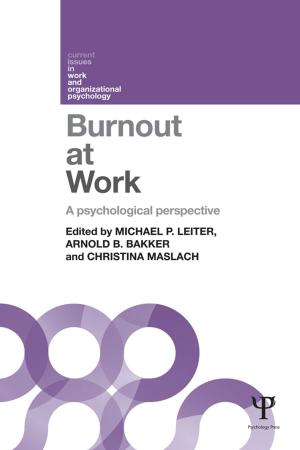The Open Office Is Naked
Nonfiction, Art & Architecture, Architecture, Public, Commercial, or Industrial Buildings, Health & Well Being, Psychology, Occupational & Industrial Psychology| Author: | Theo Compernolle | ISBN: | 9789082205848 |
| Publisher: | Theo Compernolle | Publication: | February 12, 2015 |
| Imprint: | Smashwords Edition | Language: | English |
| Author: | Theo Compernolle |
| ISBN: | 9789082205848 |
| Publisher: | Theo Compernolle |
| Publication: | February 12, 2015 |
| Imprint: | Smashwords Edition |
| Language: | English |
Because modern ZOO-directors know more about the inborn needs of their animals, than company-directors about the innate needs of people… the cages in modern zoos are better for animals, than modern offices for people.
Working in an open plan office reduces your intellectual productivity very significantly. If try to keep up your concentration, you pay the price of spending more energy, having more stress and leaving the office more exhausted than in an office with less distraction. The negative impact of these distractions that are outside of your control, is worsened by the distractions that you should control yourself: especially email, social media and surfing the web.
To know if your office is fit for the work you do is very simple: do the telephone test. If you need attention and concentration to do intellectual work, and you can hear other people making phone calls… then you are in the wrong office.
You're a knowledge worker or a manager of these brainworkers. But what do you know that’s really practically useful about your most important instrument for your work and success; your brain? For 99% of the professionals the answer is: NOTHING! What do you know about the effect on your brain, your intellectual productivity and wellbeing, of the improper use of your wonderful information and communication technology, to always be online, multitasking, constant stress, lack of sleep and ... poorly designed open offices?
In my book “BRAINCHAINS. Discover your brain and unleash its full potential in a hyperconnected multitasking world” I explain some essentials about your thinking brain, the ways you unknowingly chain it and the solutions (see www.brainchains.info) . As a result of the success of this book, I am all the time invited by companies and other organizations, for workshops and presentations about these "BrainChains". Then, too often I am kindly requested not to talk about the negative impact of open offices, a request I usually ignore, because the issue is much too important for the productivity and health of modern office workers.
I learned in the past five years that most executives are totally ignorant about the crystal-clear scientific conclusions about the negative effects of open offices… or do they knowingly choose a very short term ostrich policy, even if it undermines the long term productivity and wellbeing of their employees.
I prefer to choose the ignorance-hypothesis. Therefore, in this booklet I summarize the research of others and myself and give my own conclusions. Originally, this was a chapter of my book “BrainChains”. In the final stages of writing “BrainChains” however, I realized that my book is about counterproductive issues and behaviors that can you can and should control yourself, while your office is outside your influence. Therefore I removed the chapter and turned it into this separate booklet. To help you to spread the knowledge, this booklet is FREE TO COPY AND DISTRIBUTE under the Creative Commons Copyright rules, but please respect the many hours of work I have invested in researching the subject and writing the text, by properly referring to the source when you distribute this text.
Because modern ZOO-directors know more about the inborn needs of their animals, than company-directors about the innate needs of people… the cages in modern zoos are better for animals, than modern offices for people.
Working in an open plan office reduces your intellectual productivity very significantly. If try to keep up your concentration, you pay the price of spending more energy, having more stress and leaving the office more exhausted than in an office with less distraction. The negative impact of these distractions that are outside of your control, is worsened by the distractions that you should control yourself: especially email, social media and surfing the web.
To know if your office is fit for the work you do is very simple: do the telephone test. If you need attention and concentration to do intellectual work, and you can hear other people making phone calls… then you are in the wrong office.
You're a knowledge worker or a manager of these brainworkers. But what do you know that’s really practically useful about your most important instrument for your work and success; your brain? For 99% of the professionals the answer is: NOTHING! What do you know about the effect on your brain, your intellectual productivity and wellbeing, of the improper use of your wonderful information and communication technology, to always be online, multitasking, constant stress, lack of sleep and ... poorly designed open offices?
In my book “BRAINCHAINS. Discover your brain and unleash its full potential in a hyperconnected multitasking world” I explain some essentials about your thinking brain, the ways you unknowingly chain it and the solutions (see www.brainchains.info) . As a result of the success of this book, I am all the time invited by companies and other organizations, for workshops and presentations about these "BrainChains". Then, too often I am kindly requested not to talk about the negative impact of open offices, a request I usually ignore, because the issue is much too important for the productivity and health of modern office workers.
I learned in the past five years that most executives are totally ignorant about the crystal-clear scientific conclusions about the negative effects of open offices… or do they knowingly choose a very short term ostrich policy, even if it undermines the long term productivity and wellbeing of their employees.
I prefer to choose the ignorance-hypothesis. Therefore, in this booklet I summarize the research of others and myself and give my own conclusions. Originally, this was a chapter of my book “BrainChains”. In the final stages of writing “BrainChains” however, I realized that my book is about counterproductive issues and behaviors that can you can and should control yourself, while your office is outside your influence. Therefore I removed the chapter and turned it into this separate booklet. To help you to spread the knowledge, this booklet is FREE TO COPY AND DISTRIBUTE under the Creative Commons Copyright rules, but please respect the many hours of work I have invested in researching the subject and writing the text, by properly referring to the source when you distribute this text.















